Introducing HERI’s Co-directors
The Human Evolution Research Institute (HERI) is pleased to introduce its new Co-directors: Professor Rebecca Ackermann and Dr Robyn Pickering. Champions of inclusivity in their own careers, their place at HERI’s helm is the culmination of several years of commitment to the institute since its founding in 2016.
The co-directorship is notable also for its strengthening of an interdisciplinary approach to human evolution research, as the two bring linkages to the Archaeology and Geological Sciences Departments at the University of Cape Town (UCT).
Ackermann, who inspired HERI’s original foundation, is a biological anthropologist and professor in UCT’s Department of Archaeology. Her research investigates hybridisation as a creative force in the emergence of modern humans, and she was named one of Mail & Guardian’s Women Changing South Africa 2019.
Dr Pickering is an isotope geochemist at UCT’s Department of Geological Sciences. Her research seeks to understand where, and most importantly when, our early human ancestors evolved and in what types of environments. Her work was the first to provide a timeline for fossils from the caves within the Cradle of Humankind, where nearly 40% of all known human ancestor fossils are found.
Ackermann and Pickering bring this research expertise to HERI, along with a passion for fostering a new generation of paleoanthropologists working in an environment of inclusivity and opportunity. They open up here about the future trajectory of HERI under their new, combined leadership.
When and why was HERI founded?
RA: It had been a long-time goal of mine to have a research institute focussing on human evolution. With Robyn joining UCT in 2016, we had star researchers across two departments at the university, as well as support from Wendy Black at Iziko Museums, so 2016 just seemed to be the right time. HERI was founded and accredited in that year.
RP: 2016 was HERI’s first official year, although we started with the idea and paperwork in 2015. A human evolution institute at UCT was Becky’s dream. I only officially started at UCT in 2016, so was delighted to jump straight into the new Institute.
What are HERI’s goals?
RA: HERI’s mission is to undertake and coordinate research on the African record of human evolution in an interdisciplinary and international context. At the same time, it seeks to prioritise transformative student-body training and the promotion of socially responsible practices in South Africa. My research group had a long track record of transformative student-body training but was only a single research group. Being able to upscale this across departments and to formally include Iziko has been incredible.
RP: Initially, its goals were to centralise existing research, people, and infrastructure at UCT into a single place focused on human evolution. But we quickly realised that we had the possibility to do more than this! With our all-female leadership team and a fresh new approach centred on inclusivity, our goal at HERI is to foster the next generation of South African palaeoscientists and to actively change the face of this field of research.
How does HERI plan to deliver on its goals?
RA: We are producing cutting-edge science and amazing graduates at the top of their fields. But more importantly, we are fostering an environment that is inclusive and supportive, where our postgrads and collaborators feel empowered to tackle questions and sometimes challenge the status quo. Doing the science is only one part of success, you need teams, cohorts, and allies to really succeed and thrive. And you need to be heard.
RP: We’re the recipients of a UCT funding scheme known as the #AdvancingWomxn initiative, which gives us the opportunity to support two female African PhD students and up to two post-doctoral fellows, also African women. This funding also supports our womxn’s field camps, which we ran with great success in 2019 and are planning again now in 2022. These field camps involve third-year female students from Archaeology and Geology departments, where we train them in basic field techniques and give them a positive, informative, safe, and fun field experience. The ultimate goal, for us, is to retain these women as future postgraduate researchers in human evolution.
What does diversity in palaeoscience look like to you?
RA: For me, diversity is inclusive and not exclusionary. We need all voices and perspectives to achieve a full and richer science. I think we will have achieved a diverse palaeoscience community in South Africa when we see substantial numbers of research teams and publications being led by local black scientists and women, and authorship lists for international collaborations being majority South African.
RP: Diversity means having postgraduates and staff members of an organisation like HERI who reflect the demographics of South Africa. Our discipline has a long history of being dominated by white men, the majority of whom are not even South African. This needs to change, and we are proud to be part of that change at HERI.
What is your most memorable HERI moment?
RA: When our five-year institute review made it abundantly clear that we are on the right side of history, and that this is being recognised internationally.
RP: The workshop we ran on sexual harassment in the lab and field in 2019 – it was a hard, confronting few hours but the material we produced helped develop what is now policy.
What does the future hold for HERI?
RA: It feels like we have so many fingers in so many pies! Our near future will include an amazing museum exhibit, set to open at the Iziko South Africa Museum in 2023. We are also dreaming of expanding our team to include a palaeo-geneticist (we are training someone for that right now!).
RP: Our future is bright! We are looking to grow and grow in the next few years. Our dream would be to expand into the exciting field of palaeoproteomics and ancient DNA, as well as see our PhD graduates find permanent academic positions in South Africa.
